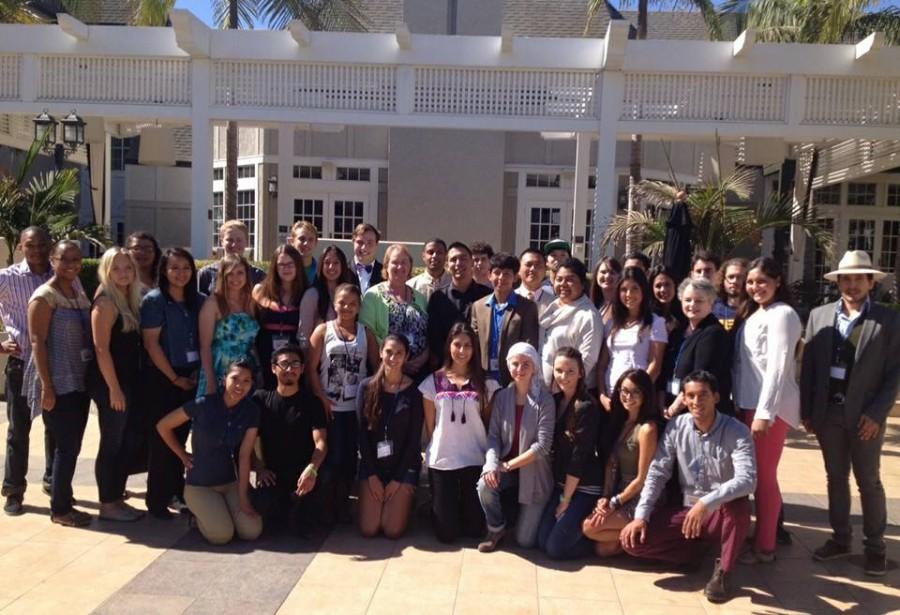Whether it’s the federal government spending hundreds of millions to bankroll green energy firms that go bankrupt, the state of California dropping
billions on a high-speed rail system, or the City of San Diego contributing to a defense fund to cover legal expenses for disgraced former Mayor Bob Filner, the examples of questionable government spending are all too common.
Mesa College is not immune to this issue.
Every semester, each student at Mesa pays an $8 fee that funds the Associated Student Government (ASG). Nearly $16,000 of that money paid for a “leadership conference” in October at the Del Mar Hilton. The tab featured $5,358.09 for “guest rooms,” $8,564.40 for “food and beverage,” and $1,831.32 for “audio/visual” expenses, according to documents obtained by a Freedom of Information Act request by The Mesa Press.
The total cost for this conference: $15,967.19.
Dr. Carl Luna, professor of political science, offered a perspective on the Del Mar conference.
“In the scheme of things, $16,000 is not a huge amount of money compared to other things schools spend money on, and it’s important to build
activities to invest in your staff development and your student leadership and all,” Luna said. “The question is, ‘Was this worthwhile? Was there enough bang for the buck for what they spent?’ And that’s what there should be a candid discussion about for future events.”
This event, originally referred to as a “student retreat,” ended up exceeding the initial $15,500 budget by $467.19. Following the approval of additional funding, it was called a
“leadership conference” in all ASG meeting minutes and other documents concerning the event.
ASG bylaws state, “In no instance shall the expenses claimed for food, transportation and lodging be in excess of amount authorized.” In an apparent violation of those rules, the ASG voted to cover cost overruns resulting from the conference, which occurred Oct. 4-6. The ASG approved the additional funding in an Oct. 16 meeting, voting unanimously (14-0), with 2 abstentions. Records do not indicate who abstained.
“It’s incumbent upon the administration to be reasonably transparent in any such expenditures,” Luna said. “It’s up to the ASG to abide by its bylaws.”
Mesa College President Dr. Pamela Luster responded to questions about the event via email. Regarding if there was any impropriety with the ASG retreat, would it be followed up on by Mesa College? Luster responded: “Yes.”
According to multiple sources present at the ASG meetings, who requested that their names not be used, there were no discussions about finding cheaper venues, or holding the event on the Mesa campus.
In an interview, ASG President Jay Walker acknowledged that the conference was expensive, and may raise questions.
“At first glance, you see this money, and you go, ‘Wow, that’s a lot,’” he said, adding, “The price…is always going to scare people.”
Yet Walker defended the cost, because the value of the conference is incalculable.
“It’s priceless, it really is priceless,” he said. “When it comes to money I know the value of a dollar.”
Walker said ASG considered six different venues. “(Del Mar) was the cheapest one. It was the one that fit the bill…we got a discount on this one.”
Asked why the conference went over the original budget, Walker said, “We had expenses that we didn’t anticipate.”
San Diego City College, which like Mesa College is part of the San Diego Community College District, had a vastly different approach to its ASG event. Its student
president, Carolina Moreno, stated, “We did have a retreat for the incoming ASG. We did not have a specific budget for this. It was a one-day retreat and we spent about $500.
Expected attendance was 20 students.”
The Mesa Press also contacted a four-year school to compare expenditures for ASG conferences. In an email, Sean O’Neal, UCSD Associated Students, Vice President of Finance and Resources, replied: “We have $500 allocated for a retreat for the Associated Students of UC San Diego, which includes 30 senators and four executive members. We use this money to have a weekend retreat where we discuss Principles of Community/Community Guidelines, Expectations of Positions, Rules Overviews, and Associated Student Office Overviews. We also have sections for team-building activities and a spot to talk about diversity and privilege.”
Luster, Mesa’s president, would not state specifically if she believed the $15,967 expenditure was justified.
“I believe that the ASG is authorized to organize and train their members utilizing the guidelines set forth in district and college policies,” she said in an email.
She characterized what was accomplished in Del Mar: “The goal of ASG is to represent students at the college, district, region, state and national level. The goal of the retreat is to build membership, teamwork, and to create a knowledgeable student leadership group so that they may do their work. I believe that they did accomplish this, and at this point we have the largest group of students in many years involved in this work.”
When The Mesa Press inquired whether the ASG would have voted in favor of funding the conference if more students were involved in the process, Luster replied, “This is a theoretical question, and one I can’t answer.”
Was this a fair use of the student services fee? “‘Fair’ is a relative term,” Luster wrote. “It was a legal use.”
Luster and Mesa’s Dean of Student Services, Ashanti Hands, were speakers at the conference. Hands declined to be interviewed for this story, despite being provided with a list of questions. She did provide a response via email that read: “The annual leadership retreat is an opportunity to train Associated Student Government, Inter-club Council and club representatives in areas of leadership, advocacy and community building. This retreat is held off-campus so that students can focus their efforts (without interruption) on leadership development, reflection, planning and building community amongst student leaders. The goal is for students to engage, learn and return to the Mesa community with wisdom, enthusiasm and equip with tools and resources to better serve, advocate for and share information with the general student population.”
She added, “Proper procedures and protocols were followed to support this retreat (which is funded through the Student Representation Fee). Retreat outcomes have yielded a more cohesive, well-informed, enthusiastic group of student leaders that are poised to advocate on behalf of and better serve Mesa College students.”
The ASG denied original requests for documents relating to the leadership conference, citing policy. The Freedom of Information Act request filed by The Mesa Press was ultimately answered by the SDCCD Department of Legal Services and EEO.
On the same day that The Mesa Press began its investigation, the respective Facebook pages of the ASG representatives were public; the following day, all were set to private.
All documents obtained from the FOIA request, including invoices, receipts, minutes of meetings, records of votes, and emails related to the gathering of this information will be
posted on The Mesa Press website and/or Facebook page.




